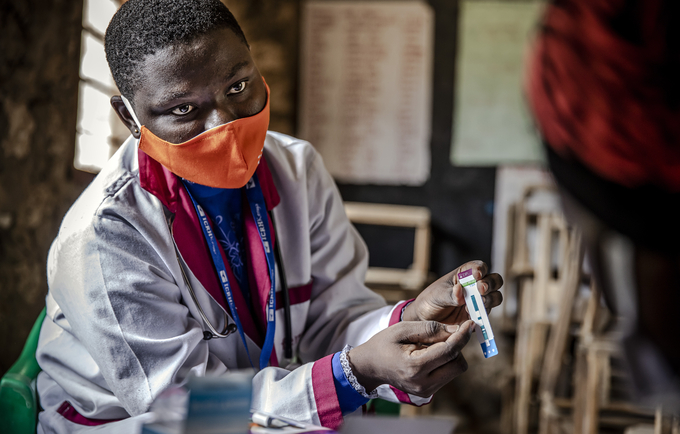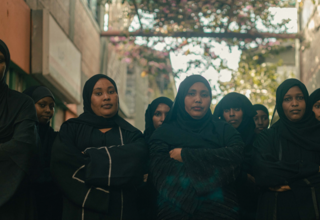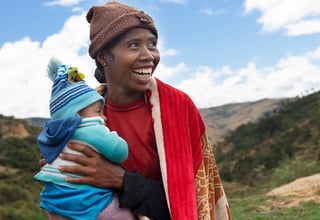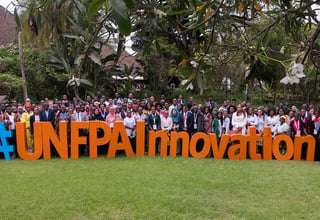UNFPA's work on improving sexual and reproductive health is a key effort towards achieving Sustainable Development Goal 3, which calls for good health and well-being. It also advances Goal 5, which calls for gender equality, as well as many of the other goals included in the 2030 Agenda.
UNFPA works with the government, other UN agencies, civil society, and donors to develop comprehensive efforts to ensure universal access to sexual and reproductive health care. We advocate for integrating the delivery of these services into primary health care, so it is as accessible as possible. This means, for instance, that a woman could address her family planning, antenatal care, HIV testing, and general health needs all in one place.
We additionally work with governments and communities to strengthen health systems, including supporting the implementation of reproductive health programmes, improving the quality of reproductive health care, and strengthening human resources. UNFPA also works to make sure reproductive health commodities are available where needed, and that a functioning logistics system is in place. The Maternal Health Thematic Fund and UNFPA Supplies are just two examples of UNFPA’s work in strengthening health systems and quality services.
While strengthening national systems, UNFPA also puts special emphasis on increasing access for disadvantaged groups, including young people, the urban poor, rural communities, indigenous populations, and women and girls with disabilities.
Key aspects of UNFPA's work in Kenya include:
Strengthening reproductive health services
We support improving reproductive health services, ensuring that women have access to services that can help them have a healthy pregnancy, safe delivery, and a healthy baby.
Improving supply chains for contraceptives
We work to ensure the availability and accessibility of safe and effective contraceptive methods for individuals to make informed choices about their sexual and reproductive health. This is meant to strengthen reproductive health commodity security, focusing on supply-chain management and last-mile assurance.
Advocacy against gender-based violence
We engage in advocacy efforts to prevent and address gender-based violence, ensuring that individuals are informed and empowered to protect themselves from sexually transmitted infections. We additionally scale up services to address GBV and harmful practices, including referral mechanisms, mental health, and psychosocial support, through a life-course approach.
Adolescent sexual and reproductive health
We focus on addressing the challenges faced by adolescent girls and the youth, such as lack of information about sexual and reproductive health, teen pregnancy, and new HIV infections. UNFPA recently launched a $10.1 million Adolescent Sexual and Reproductive Health Development Impact Bond (ASRH DIB) to fund the delivery of high-quality, adolescent, and youth-friendly sexual and reproductive health services in ten counties. We additionally advocate for comprehensive sexuality education and the elimination of harmful practices that affect the sexual and reproductive health of young individuals.
Integrating sexual and reproductive health services within Universal Health Coverage
UNFPA supports the government of Kenya in integrating sexual and reproductive health services within Universal Health Coverage, aiming to improve access to priority services and minimize the incidence of STIs, HIV, and other reproductive health issues.
Strengthening of national and county capacity to plan and deliver the Minimum Initial Service Package for reproductive health
This is to contribute to building national capacity to mainstream SRH and GBV interventions in climate change, conflict resolution, and peacebuilding strategies; and scale-up of comprehensive and high-impact interventions for SRH, HIV, and GBV integration and prevention of HIV and sexually transmitted infections.
Community Engagement
Our community-based programs encourage active participation, fostering a supportive environment for sexual and reproductive health discussions. Through community engagement, we aim to reduce stigma, improve awareness, and promote positive health-seeking behaviors.




